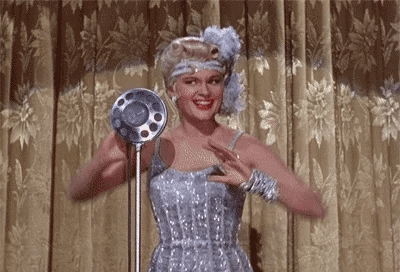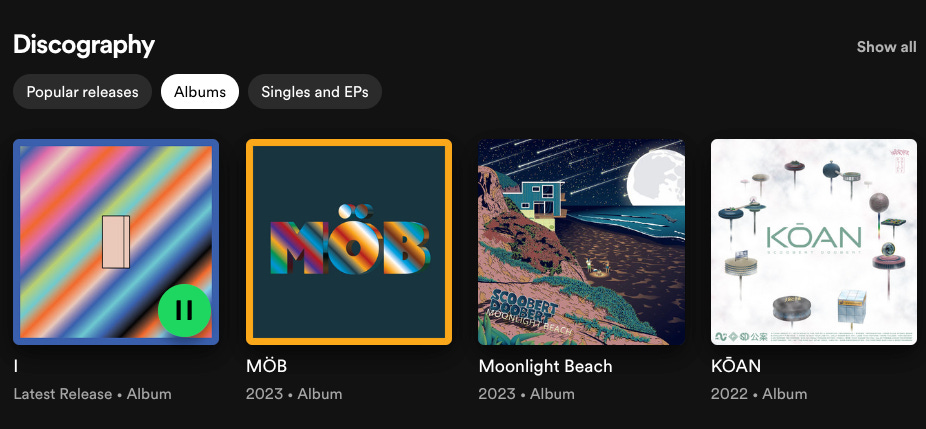Vocal Comping (the Art of Combining Takes)
"Vocal comps are one of the most mentally draining things I do in the studio. I listen line by line, sometimes word by word, for attitude, pitch, and phrasing." - Butch Vig (He made Nevermind)
Recording vocals is hard.
It’s probably the hardest and most important step of the entire pop-music production process. A great vocal can elevate everything, a middling one can let down the rest of the arrangement.
Vocal Recording
One of the hardest things about record production is our points of comparison. More often than not the artist will have an end point in their head. Oftentimes it’s to join the pantheon of their heroes.
They want to sound like a great record, so they pull out references of artists they respect and admire.
These refs are generally finished products. Comped, mixed, mastered. Sometimes hundreds of thousands of dollars were spent on these classics. And you’re comparing their final product with your rough mix.
That’s discouraging.
I think it’s important to try and get through that valley of despair as quickly as possible, knowing that you’re making an unwinnable comparison throughout.
Separating the Editor and the Performer
Vocal comping is the process of sorting out multiple takes, grabbing the best versions of each section, line or even word, and putting them together!
Even classic recordings would do this on tape. Nowadays, it’s super easy to do this digitally. Most of what you hear has been comped between 10-100 different takes, some as granularly as each syllable.
Here’s a couple minute clip with Billie Eilish, Finneas O'Connell, and David Letterman discussing comping:
By knowing that you’ll comp later, you can free yourself or the vocalist up to give a more varied and stressfree performance.
It helps you get through that valley of despair.
How to Sing for the Comp
I used to suck at this. There’s a way to sing to set yourself up for a great comp. I used to sing the same thing, the same way, over and over again.
Now that I have comped thousands of vocals (probably tens of thousands tbh), I try new things.
Try different parts of resonance chambers (try it more nasal, more boomy, more like it’s coming out of the top of your head, or from your stomach) .
Try different pronunciation. Are you hitting your consonants enough?
Some singers have difficulty singing in their highest register for certain mouth shapes. So vocal teachers often preach vowel modification. This can be fine and all for live performance, but can sound really weird in recordings. By varying your vowel modifications, you can have more options if words start to become unintelligible.
Here’s a quick video showing the concept:
Comping for Emotion
The number one goal of every vocal comp should be the most emotive performance possible. That doesn’t mean the most melodramatic. It means the vocal that’s best suited for the vibe of the song.
Sometimes singing against the meaning can be engaging and complex.
A bright vocal on a sad song. A somber vocal on a happy song.
Here’s an example of my trying to use vocal vibe to add to lyrical meaning:
Comping for Pitch and Phrasing
It almost always sounds better if the singer is in pitch and then touched up using Auto Tune or Melodyne, rather than rebuilding the vocal using software. (Genre dependent of course!)
So taking note (pun intended) of which takes were on pitch is a solid strategy for comping. Phrasing, or the flow/rhythm of the vocal, is huge. Try to find a natural pocket, so you don’t have to build one in the computer.
Comping for Understanding
Audiences like to understand the lyrics. Of course, vibe and pitch are more important, but it’s a good thing to keep in mind.
Here’s a recent verse of mine. Each of the takes were pretty in pitch and had decent vibe, but it was really hard to make out what I was singing in any one take. I was using too much vowel modification to hit the pitch.
But since the vibe was pretty solid across these 7 or 8 takes, I was able to switch between the best pronunciation:
The Perfect Comp
The perfect comp is genre dependent. The poppier the song, the more comping I generally do. The more acoustic, the less comping I do. It’s just another parameter to adjust on the scale of perfect to authentic.
The ideal comp is a balance between vibe, pitch, pronunciation, and authenticity.
Yes, you can comp your vocalist into oblivion. Many engineers overproduce the vocal and make it sound like Vocoloid music (which is awesome but rarely the goal):
Zoom Out!
The antidote to overproduction is taking a walk and starting at the beginning of the song again. No one will ever hear your music on a feverish loop of one tiny section. The music and vocal will flow by them like a river.
By taking stock, seeing the river rather than a little tributary of the stream, can help you realize if a section needs to be perfected or if it can exist with beautiful humanity.
Don’t Underdo It
When you work with really talented people, it’s easy to just be in awe of their skill.
That doesn’t mean you should just let it ride. Apply the same diligence you would, take off your rosy glasses, and stop being starstruck by a great performance. There are probably things that still need some love.
Give them that love and attention. It will take the piece from great to exceptional.
(My new podcast episode considers this same topic:)
Bonus Tip: Clip Gain
Clip gain is the best thing ever. When you comp you will have two different regions:
Sometimes the vocalist will be closer or father away from the microphone on a given take. By changing the gain (volume) of each region, you can level out the changes between takes and create a smoother listening experience, so it sounds like one complete performance rather than a Frankenstein vocal.
Here’s an extreme example of gaining down:
By doing this first, you can set yourself up for future success down the vocal signal chain.
My New LP!
Speaking of vocals! I sang an awful lot of harmonies (alongside Lou Roy) on my new album.
I think Grizzard Graphic’s illustrations are so dope. Love seeing these LPs side-by-side (below). Hope I can press vinyls of them all some day.
…but a vinyl for “I” is in progress! And subscribers here will get first dibs on the limited pressing!
And if you want to hear more about the science and art of vocals, I really enjoyed this chat I had with Alessandra Levy, vocalist and voiceover artist:
Until next time!
-Scoob
These free posts are brought to you by DistroKid.
Sign up using our code for 30% off your order.
DistroKid makes music distribution fun and easy with unlimited uploads and artists keeping 100% of their royalties and earnings. A million+ artists rely on DistroKid to get their music into Spotify, Apple Music, YouTube, TikTok, Tidal, Instagram and all the major streaming services.











